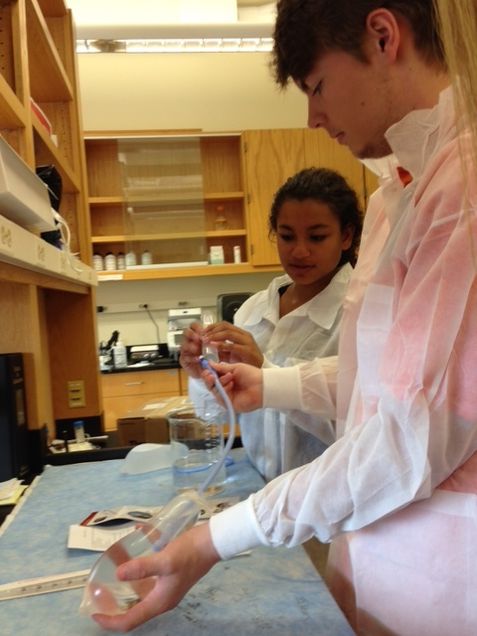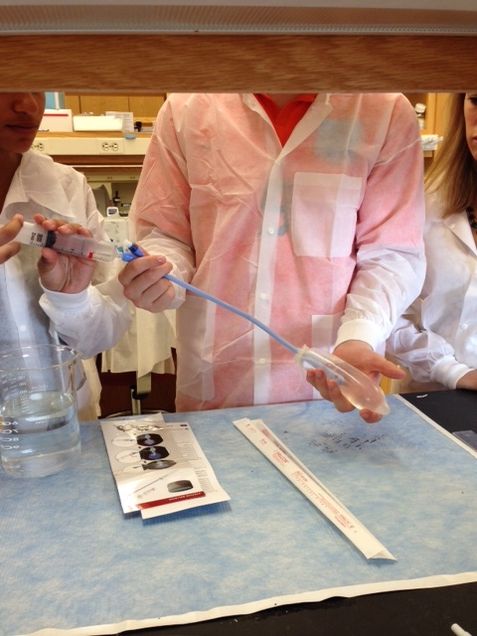Hospital and WHO visits

(From left to right) Sumayya, Safia, Jared, Maya, Sara (Photo taken by Asaa)
The last few days we have been working with the SUZA team to refine the long list of questions that resulted from previous brainstorming sessions. Today was an exciting day because we finally received permission from the Minister of Health to begin interviews in the hospital. This morning we worked in teams of two and began speaking with doctors, nurses, lab technicians, and mothers at the antenatal clinic in Mnazi Mmoja Hospital in Stone Town.
Mbweni Ruins, Dhow Cruise, and Stonetown Tour
For our first weekend in Stonetown we were able to go on a couple excursions. Saturday we took a dala dala, the local bus, to Mbweni Ruins. The ruins seem to be the remnants of a huge stone palace, and they have an adjoining tourist beach. That evening, we took an evening cruise on a dhow boat and got to see some beautiful views of Stonetown at sunset. More
Meeting with SUZA Team
Thursday July 2nd, we had our first meeting with Dr. Salum and his second-year medical students at SUZA. We had a nice discussion with the team about our plan of collecting information and data from different medical centers and mothers. There were many questions we had to consider while discussing our plans. More
Meeting our Host Families
Last Wednesday was the first day we met our host families. These families, like the rest of the Zanzibari people, are very welcoming and want us to feel like Zanzibar is our home. We shared Iftar with them and are treated as their own children. Maya happens to have the same host mother as Jasmine, our guide, had the previous summer. Sara is now part of a very large, multigenerational family who live in a three-story home. More
Getting to Zanzibar
Check out our journey from Boston to Stone Town! It ended up being longer than expected, with a detour through Nairobi:
Summary: Pre-Departure Research
Since Memorial Day we have been working together in Boston to prepare for our trip to Zanzibar. We have done a lot of literature review to learn everything we need to know. Our literature review has covered a wide range of topics from culture in Zanzibar to comparisons of medical devices. At first, we tried to learn as much as we could about health issues like postpartum hemorrhaging (PPH) and anemia, and then about existing solutions to these problems. More
Presentations
This past month we've spent a lot of time doing research and literature reviews to familiarize ourselves with the most common maternal health issues faced in Tanzania and Zanzibar. We each prepared a presentation on a topic of our choice. More
Experimenting with the UBT
Last week we put the condom-catheter Uterine Balloon Tamponade (UBT) to the test. We filled the balloon with 0.5 liters of water and tested out how long it would last - UBT's are usually needed for anywhere up to 48 hours. The UBT lasted over four days.

Look, Listen, Learn: Dr. Onyango and Dr. Burke
This week we met with two professionals well-versed in the medical sphere of developing countries: Dr. Monica Onyango and Dr. Thomas Burke. Dr. Onyango has extensive experience studying and working in South Sudan, Angola, and her native country Kenya, . She is currently a Clinical Assistant Professor of Global Health at Boston University’s School of Public Health. She gave us insight into the delivery experience for women in East Africa as well as the major influencers on decisions regarding maternal health. She pointed out that many countries have high rates of antenatal care, but women still choose to deliver at home due to privacy and crowding concerns at hospitals. She noted that in largely patriarchal societies, the opinion of the mother-in-law is typically holds the most weight when a decision needs to be made on maternal and child care. More
Maternal Health Landscape in Tanzania and Zanzibar
Though worldwide rates of maternal mortality have seen a decrease of almost 50% in the past 25 years, the quality of maternal healthcare still varies greatly from region to region. Hundreds of thousands of women die each year due to complications during pregnancy, and rates of maternal mortality are 14 times higher in developing regions.1In developing countries, many women experience hemorrhaging during delivery and postpartum. Most cases of postpartum hemorrhage (PPH) are preventable by actively managing the third stage of labor (AMTSL). However, the majority of women in resource-poor areas are not attended by a trained medical professional while giving birth, so they cannot get the care they need. More



